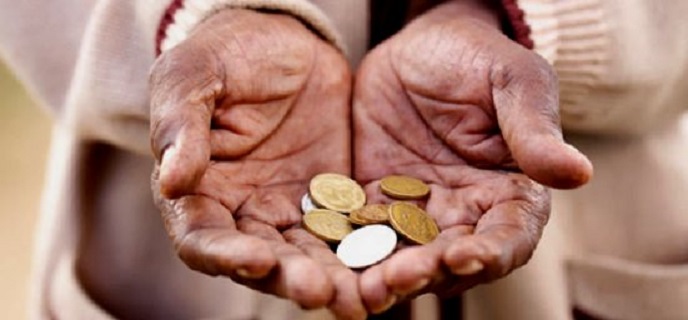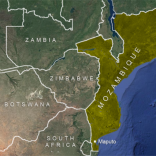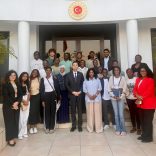Mozambique: Police concerned about murders of women in Sofala
Charity attracts fines of up to 6,000 meticais – Maputo, Mozambique

In File Club of Mozambique
At 7:17 AM in downtown Maputo, the flow of people and vehicles intensifies. These are the workers, employees, university students and traders arriving from different parts of the Maputo metropolitan area of for another day’s work.
Marta Mulungo also comes every day of the week, usually at the same time, to the corner of Avenues Karl Marx and 25 de Setembro. She is not a worker in one of the offices in the area or a student. Marta is an elderly, physically handicapped 60-year-old of age who sits on the sidewalk, her hand out-stretched for the charity of passers-by.
“At least getting money to buy flour and rice to feed my grandchildren,” she says. She was born unable to walk and cannot remember how long has she been begging. “I just want a little help,” she says; begging is her only means of support.
But from now on, anybody who puts a coin in her hand, or indeed a donation of any kind, will be committing a crime – at the initiative of the municipality of Maputo, as adopted by its municipal assembly, which prohibits begging.
A municipality survey suggests the number of beggars in the city, already around 800, is steadily rising, and says this alone justifies the measure. Other factors include suspicions that many are not really in need, and that begging puts the vulnerable in danger, of being run over, for example.
“We want to control disorderly begging, facilitate the implementation of support measures and reduce the risk to which the vulnerable are exposed,” explains Nurhay Calú, municipality Health and Social Welfare councilwoman.
The regulations will also apply to commercial establishments, religious institutions, restaurants or hotels that on Fridays often give to those in need. The reason given is that these are not appropriate places for such a purpose, and support should be channelled through centres established by the City Council.
The statute entered into force in September this year but the municipality of Maputo says it will only start fining violators next year. “At the time, we will give priority to informing beggars, drivers and pedestrians not to give alms in public spaces,” Councilor Calú says.
The table of fines says that drivers and pedestrians who contravene the regulations may incur fines up to the value of the minimum wage (currently around 6,000 meticais), and commercial and religious establishments fines of up to twice the minimum wage












Leave a Reply
Be the First to Comment!
You must be logged in to post a comment.
You must be logged in to post a comment.